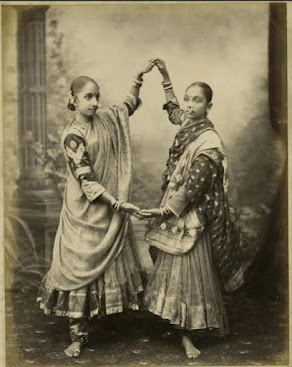Ghalib’s fantasy and impossible reality - A glorious Tawaif

"All people are not poets, but all poets have a love affair with life. If poetry is a love affair with life, which it is, then the poets must have a beloved..." In some cases, poets have had more than one beloved. This made them and their poetry amazingly curious and curiously amazing. To think of love and life is to think of Ghalib the lover and Ghalib the beloved. A glimpse……… The courtesans of Awadh, also known as tawaif or nautch-girls, were famed for their beauty and talent. The word can be taken to mean a prostitute, but the women involved were much more than that. As eminent historian Veena Talwar Oldenberg writes in Places of Performance: The Mughal Court and the Culture of a Northern Indian City 1550-1750 (1997), "Nearly all the women are known by their first names, indicating that they were not anonymous commodities but had individual personalities." The celebrated poet Ghalib was said to have composed many of his verses on the most beautiful amo...
.jpg)

